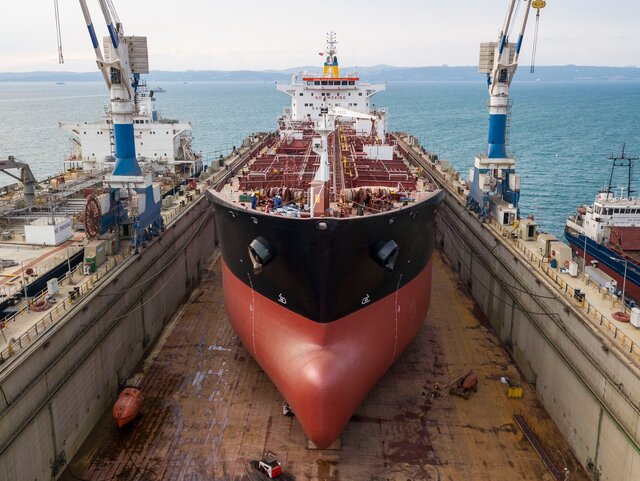MARIN Validates Groundbreaking Efficiency of Dynafin™ Propulsion

MARIN - the Maritime Research Institute Netherlands - has confirmed in tests that the efficiency levels modelled for ABB’s Dynafin™ propulsion concept will translate into real-world ship performance gains.
The announcement follows tests conducted at MARIN’s Concept Basin. The enhanced efficiency of the Dynafin™ propulsion concept will correlate to substantial fuel savings as well as significantly lower ship emissions.
Following a decade of development, Dynafin™ represents a fresh take on ship propulsion with a set of electric motors powering the rotation of a large horizontal wheel that supports vertical blades - each of which is controlled by an individual motor to mimic the motion of a whale’s tail.
This mechanism of action allows Dynafin™ to both propel and steer vessels.
The system was validated in comprehensive open-water tests, where MARIN’s data analysts worked with specialists from ABB Marine & Ports and ABB Corporate Research in Sweden. The results were impressive, with Dynafin™ at 18 knots speed achieving up to 81 percent open water efficiency in full scale.
Commenting on the tests and subsequent results, Jie Dang, Senior Project Manager and Principal Investigator (PI) of MARIN, said:
“At MARIN, we measure hydrodynamic forces and moments, and determine hydrodynamic efficiency. All mechanical and electric losses have been subtracted from the test set-up.
We placed a shaft torque and an RPM transducer, as well as a six-component force frame, which was calibrated here at MARIN, to measure the overall unit forces and moments. We calibrated also the fin servos with the six-component shaft transducer of our torque motor”.
ABB have stated that part of the Dynafin’s exceptional performance can be attributed to the company’s experience with robotics control. According to Bin Liu, Senior Principal Scientist at ABB, “We have integrated ABB’s leading robotics expertise into the ABB Dynafin propulsor and achieved exceptionally strong, fast and accurate motion control performance”.
Janne Pohjalainen, Global Product Line Manager for ABB Dynafin commented that, “ABB Dynafin is all about extremely high efficiency, and this model scale testing gives a good platform for our customers to verify its performance. Our testing has been really successful and what we have seen fully aligns with our expectations from computational fluid dynamics (CFD) analysis”.
With the open water tests having been completed and confirming the performance of Dynafin, it is expected that ABB will begin taking it to market. Initial plans focus on medium-sized and smaller vessels, including ferries for passengers and vehicles, small cargo, offshore support vessels and yachts, in the power range of 1-4 MW per unit.
Need to validate the performance of a design?
Then consider choosing Brookes Bell’s computational fluid dynamics (CFD) service. Our areas of CFD expertise include both aerodynamic and hydrodynamic analysis, and the free surface interaction of the water and air, as well as heat transfer analysis.
Explore computational fluid dynamics at Brookes Bell now
For more maritime industry news, insights and developments, read the Brookes Bell News and Knowledge Hub…
Major Inspection Firms Consider Merger | Schottel Propels World’s First Autonomous Electric Ferries | The History of Container Shipping
- Date
- 06/05/2025

